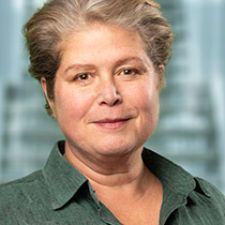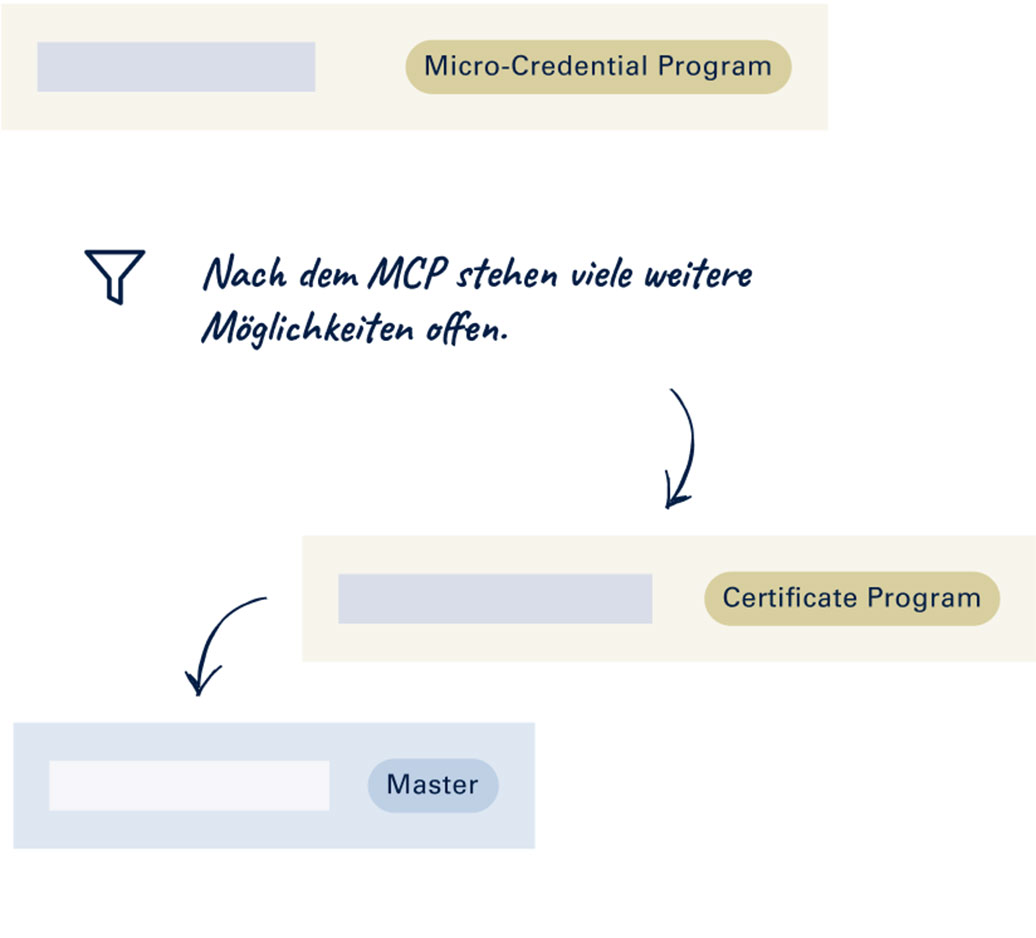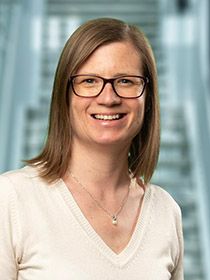-
Graduation
Certificate
-
ECTS-Points
6
-
Learning format
-
Duration
1 week, part time
-
Costs
proportional to curriculum price
-
Language
German or English
-

Choose from practical options to tailor your learning experience:
PROJECT: Apply your knowledge through personal projects, developing organizational and creative thinking skills.
INDEPENDENT STUDY: Conduct independent research with a structured framework, focusing on solid methods and clear results.
RESEARCH WORK: Enhance your academic writing and research skills, applicable in content creation or academic publishing.
INTERNSHIP: Gain practical experience in arts and cultural institutions, transferring classroom knowledge into real-world skills.
ARTS & CULTURES LAB: Collaborate in a lab environment, tackling practical challenges in arts and culture under expert guidance.

Through the lens of continuing education, practice breathes life into theory, transforming knowledge into action and empowering learners to shape the future.
Wendy Coones
Studienleitung – Department for Arts and Cultural Studies
Benefits of the program
- Low-residency: by holding block-format teaching, micro-credentials can be more easily integrated into everyday working life
- Small groups: Group sizes of max. 20 people make it possible to respond to the needs of the individual participants. Team building and networking are very important to us.
- Specialization: we offer micro-credentials in a wide range of subject areas in the arts & cultural studies. You benefit from renowned lecturers with many years of experience
-
for working professionals
-
small class sizes
-
specializations
Stackable Program
In combination with other continuing education programs, Stackable Programs can be combined to achieve an academic degree.


The Stackable Program offers me complete flexibility in the design of my studies.
Tatjana Kohl
Student
Content
- Identify central aspects of the history and theory of exhibitions.
- Analyze crossmedia exhibitions developed as applied research and cultural practice.
- Compare the approaches to crossmedia storytelling in the cultural and creative sectors
- Develop applications that integrate knowledge transfer and/or storytelling in exhibitions
Microcredential - 3-12 ECTS
Conception and Planning - Project - Independent Study - Research Work - Internship - Arts and Culture Lab
Praxis in Arts and Cultural Studies
By applying the skills fom this practical module, students equip with a robust toolkit adaptable to various contexts can contribute to the cultural landscape, influence public policy, engage in creative industries, and participate in community development, ensuring that the arts remain a vibrant and integral part of society.
-
Contents
This course lays the groundwork for thriving in immersive professional projects within the arts and cultural sectors. Students will learn to design and implement praxis projects, drawing on scientific principles for their conception and development. The course emphasizes the importance of blending academic rigor with practical relevance, ensuring that students are well-prepared for real-world applications. By focusing on the ability to conceptualize and plan projects, students will be equipped to lead initiatives, manage teams, and execute projects in various professional settings, including cultural institutions, non-profits, and entrepreneurial ventures.
-
Contents
In this course, students will undertake the creation of a personal project, applying their knowledge to the Arts and Cultural Studies. The course covers project conceptualization, operational planning, and internal perspective management, fostering a comprehensive understanding of project dynamics. By developing a personal project, students will hone their organizational and creative thinking skills, which are in high demand across various industries. The course emphasizes the importance of considering individual contexts and adapting processes and sequences to specific situations in the field of art and cultural studies.
-
Contents
This course offers a structured framework for students to conduct a supervised independent study on a topic of personal interest within Arts and Cultural Studies. Emphasis is placed on methodological soundness, depth of inquiry, and clarity of outcomes, culminating in a reflective presentation. The course supports the development of skills necessary for independent research and reflection, which are beneficial for roles that require self-directed work, such as consultancy, journalism, policy development, entrepreneurship, or any area within the cultural sector where self-guided work is prevalent. Students will engage in the design, negotiation, fulfillment, and presentation of a comprehensive learning contract, ensuring a methodologically sound approach and clear result criteria.
-
Contents
Focusing on academic writing, this course challenges students to delve into the core concepts, terminology, and methodologies of Arts and Cultural Studies. It encourages in-depth research and contextual analysis, enhancing scholarly discourse and personal academic pursuits. The course covers key concepts and terminology, providing a solid foundation for individual academic exploration. Students will examine the intricate contexts of Arts and Cultural Studies, considering their scholarly, historical, institutional, and societal dimensions. This comprehensive approach ensures that students develop strong research and writing skills, which are crucial for positions involving content creation, academic publishing, education, or communication roles where articulating complex ideas is essential.
-
Contents
The internship course bridges academic theory and practical application, allowing students to gain hands-on experience in Arts and Cultural institutions. It emphasizes the translation of classroom knowledge into real-world skills, tailored to students’ career aspirations, and offers insights into various operational structures. This practical experience is invaluable, as it can lead to employment opportunities in the field of the internship or provide a competitive edge in related cultural and creative sector positions. Students will apply theoretical knowledge from crossmedia exhibition development in practice and reflect on their practical experiences, aligning them with personal career interests and the internal perspectives of Arts & Cultural institutions.
-
Contents
This collaborative lab environment offers students the invaluable opportunity to immerse themselves in an intensive active learning environment that encourages collaboration. Students work in teams to tackle practical challenges in Arts & Culture under the mentorship of experienced practitioners in dynamic environments. The course emphasizes the development of collaboration and strategy development skills, which are essential in interdisciplinary teams, community arts projects, and roles that require adaptation to diverse perspectives and societal needs. Through hands-on projects and real-world scenarios, students will learn to reflect on teamwork effectiveness and utilize the strengths of each individual member. They will also develop and evaluate strategies that enable the effective integration of Arts & Culture within various sectors, including academia, creative industries, and broader society.
Program Lead
Participation


